Summertime is an ideal time for car rides. The weather is usually pleasant, the sun shines down on you, and your windows can be opened to let in some fresh air. But one thing to be mindful of during these hot months: heat!
Unbelievably, too much heat can actually cause your car battery to die. In this blog post, we’ll look into what causes a battery to die from heat exposure and how you can avoid it from occurring.
Key Takeaway
- Hot weather can cause a battery to die faster because the water in the electrolytes evaporates faster.
- A battery can withstand up to 300 degrees Fahrenheit before suffering irreparable damage.
- High temperatures make it harder for the battery to charge.
- Hot weather causes battery terminals to corrode.
- To protect your battery from heat, park your vehicle in the shade and avoid using electronics that draw too much power during the summer months.
Can a Car Battery Die From Heat?

Yes, car batteries can suffer from heat exposure. Batteries contain liquid electrolyte that produces energy through chemical reaction; warm weather speeds up this process, leading to faster battery death than usual.
Furthermore, increased humidity causes the water in the electrolyte to evaporate which damages cells within the battery.
Car batteries are a type of lead-acid batteries that provide power to start an automobile. They typically reside under the hood, in the trunk, or in another accessible location outside of the vehicle. A typical car battery consists of six cells connected in series; each cell producing two volts of electricity for a total voltage of 12 volts.
Lead-acid batteries, composed of lead cells filled with sulfuric acid electrolytes, are widely used in cars due to their relative affordability and high power-to-weight ratio. Most car batteries require no maintenance whatsoever; however, some require periodic topping up with distilled water for proper functioning.
Car batteries typically last three to five years before needing replacement, though older batteries tend to perform worse in summer temperatures. Many car owners wonder if their vehicle’s battery can actually die from heat stress.
As a result, it’s important to keep an eye on your car’s battery during periods of extreme heat.
If your car’s engine is taking longer to start or the battery seems weaker than usual, it could be time for a mechanic’s inspection. With proper care, you can help protect your battery from dying in hot weather.
What Temperature Kills a Car Battery?
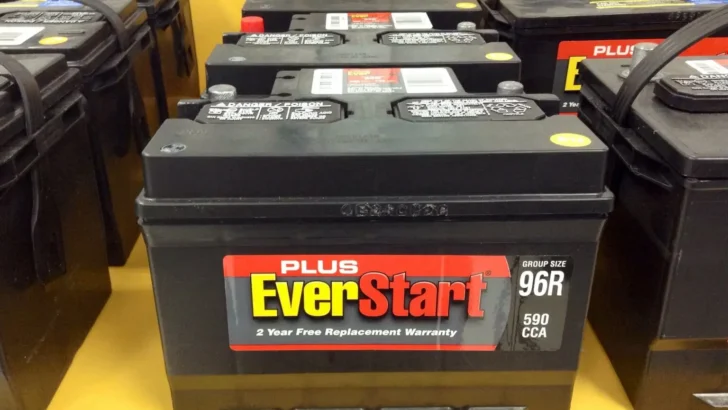
Car batteries are designed to withstand a wide range of temperatures, from -40 degrees Fahrenheit to 140 degrees Fahrenheit, and still, work properly. Studies have even demonstrated that some car batteries can withstand temperatures as high as 300 degrees Fahrenheit before experiencing irreparable damage.
Car batteries are designed to withstand a range of temperatures from below freezing to well above boiling. Unfortunately, there comes a point at which they will become irreparably damaged – usually, this temperature exceeds that of water’s boiling point.
The battery consists of multiple cells, each with a positive and negative electrode. They are separated by an electrolyte layer that allows electrons to move between them. When cold, however, this electrolyte becomes less conductive, making it harder for electrons to flow between them.
Thus, car batteries are designed with thicker electrodes and higher concentrations of electrolyte to compensate for this loss of power in cold weather. This helps ensure that they can still provide sufficient output.
At very high temperatures, the battery’s internal chemical reactions begin to break down, leading to swelling and eventually rupture. While heat is the most common culprit behind battery failure, prolonged exposure to cold weather can also contribute.
When temperatures drop below freezing, the electrolyte in your battery begins to solidify, restricting it from flowing freely and eventually damaging its internals. Therefore, it’s essential that you avoid extreme temperatures whenever possible in order to extend the life of your car battery.
What Are The Signs of a Dying Car Battery?
The signs of a dying car battery can include slow engine crank, dim headlights and interior lights, a lit battery warning light on the dashboard, frequent need for jump starts, and an old battery.
Slow Engine Crank
When your car battery is dying, one of the first signs you may notice is a slow engine crank. This means that when you try to start your vehicle, the engine turns over slowly but does not start right away. The slower cranking is due to the lack of sufficient power from the battery.
Dim Headlights and Interior Lights
Another common sign of a failing car battery is dim lights. If your headlights and interior lights are not as bright as usual, this could mean that your battery isn’t providing as much power as it should.
Battery Warning Light
Many vehicles have a battery warning light on the dashboard that will illuminate if the battery is not charging properly. If this light comes on and stays on, it’s a clear sign that your battery may be on its last legs.
Frequent Need for Jump Starts
If you find yourself needing to jump-start your car often, it’s a strong indication that your battery is dying. A healthy battery should be able to hold a charge well enough to start your car consistently.
Old Battery
If your battery is more than three years old, it may be nearing the end of its lifespan. Car batteries typically last between three and five years, so if you’re hitting that age range, it’s a good idea to have your battery tested to see if it’s time for a replacement.
Why Does My Car Battery Die In Hot Weather
Anyone who has ever been left stranded with a dead battery knows the frustration it can be. While hot weather may be partly to blame, there are actually several different reasons why car batteries tend to die during summer heat waves.
1. Hot weather causes the battery fluid to evaporate
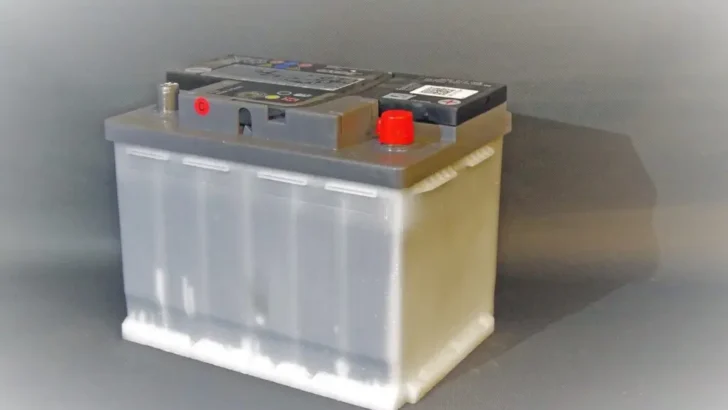
Hot weather can cause battery fluid levels to drop due to increased evaporation rates from the chemicals present. When temperatures rise, these active compounds become more vaporized and water evaporates more rapidly – leading to a reduction in total liquid levels.
In extreme cases, this could even lead to overheating and fire hazards; fortunately, most car batteries are designed with protection in place but it’s still important to check your battery regularly and add water as necessary for optimal functioning.
2. High temperatures make it harder for the battery to recharge
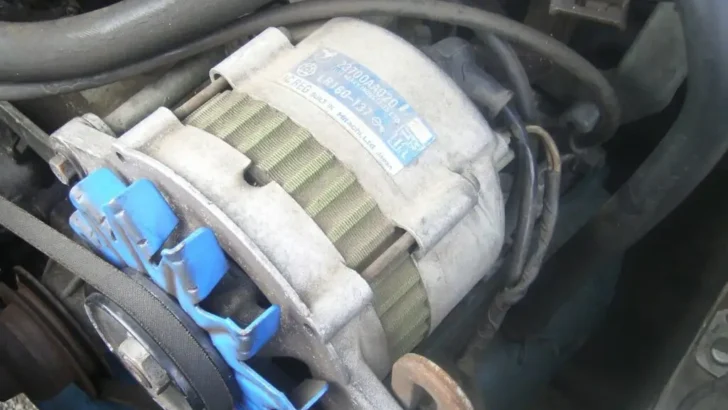
When temperatures outside rise, so too do your car’s interior. While you may not think twice about getting in your vehicle on a hot day, high temperatures can have a major effect on its battery.
Alternators rely on chemical reactions to generate electricity which is slowed down by high temperatures; consequently, they have difficulty charging when temperatures are high outside.
High temperatures can have an adverse effect on battery performance. When temperatures increase, chemical reactions inside the battery begin to happen more rapidly, leading to faster discharge rates and decreased recharge capacity.
Furthermore, high temperatures cause electrodes to expand which leads to loss of electrical contact and further reduces the capacity for recharge.
3. Hot weather causes the battery terminals to corrode
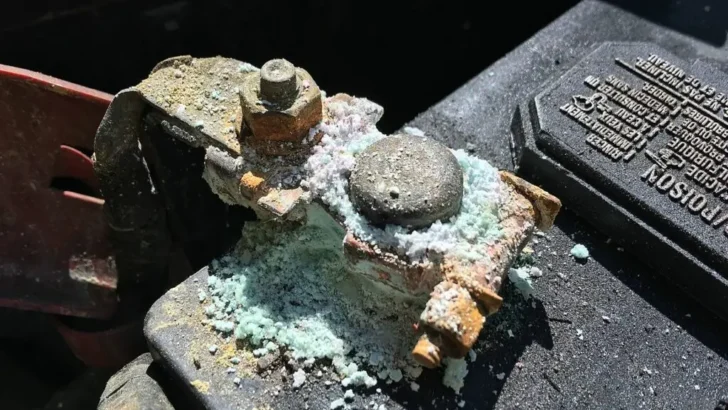
When people think of battery corrosion, they typically envision the white, powdery substance that can build up on the terminals. However, battery corrosion can also take the form of rust; either way, its presence indicates your battery isn’t functioning optimally.
There are various reasons why weather can cause battery terminals to corrode: hot weather causes battery fluid to evaporate leaving cells exposed to air and moisture which then attracts dirt particles onto them and causes corrosion over time.
How To Protect Your Car Battery From The Heat
As the weather warms up, it is increasingly important to protect your car battery from heat damage. Excessive temperatures can cause the battery fluid to evaporate, damaging its internal structure and decreasing its ability to hold a charge.
If you live in a hot climate or plan on driving during hot conditions, there are several steps you can take to help keep your battery cool.
1. Park your car in the shade

Parking your car in the shade may seem like a small matter, but it can have an enormous effect on its battery. Batteries are made up of various chemical components that break down under high temperatures; parking your car in the shade helps prevent this damage.
Excessive heat can wreak havoc on batteries, leading them to fail prematurely. Furthermore, heat can cause the fluid in a battery to evaporate – leading to corrosion and further destruction. By parking your car in shaded areas, you can help keep your battery cool and protect it from heat-related damage.
2. Avoid using any electronics that generate heat

On a hot summer day, the last thing you want is for your car to overheat and stop working. Unfortunately, heat can also have detrimental effects on its battery.
This vital component for starting the engine is particularly vulnerable when exposed to extreme temperatures; when its chemicals inside begin to break down due to excessive heat exposure, you’ll lose power.
To protect your battery from heat damage, avoid using electronic accessories that generate heat such as radios, navigation systems, and anything else that puts an additional strain on it.
3. Check your battery regularly
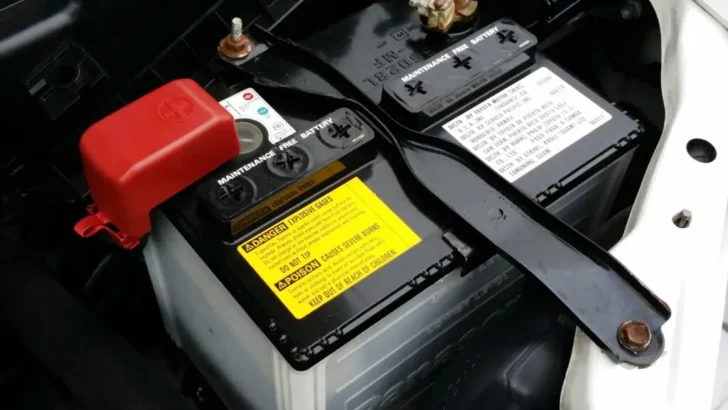
As any car owner knows, the battery is an essential part of their vehicle. Without it, the engine won’t start and the lights won’t come on.
Unfortunately, batteries can also be delicately damaged by extreme temperatures; when temperatures rise too high, battery fluid evaporates, leading to internal parts overheating and potential failure – potentially leading to costly repairs in the future.
To protect your car battery from heat damage, regularly inspect its condition. If you observe any cracks or leaks, take it to a mechanic for inspection.
Furthermore, don’t forget to top up the fluid levels before going on long drives in hot weather. By taking these simple precautions, you can help extend the life of your battery.
Can The Sun Drain Your Car Battery?
A car battery is essential for starting a vehicle, powering its lights, and running electrical accessories. Without one, your car won’t start at all; so it’s essential to regularly monitor the condition of your battery to ensure it remains optimal.
The electrolyte, located inside a car battery, is composed of water and sulfuric acid. This fluid helps conduct electricity between the positive and negative electrodes of the battery when charged; when electrons flow from one electrode to another during charging.
When the battery is discharged, the electrolyte allows electrons to pass from the positive electrode to the negative electrode. Furthermore, it helps keep these electrodes from corroding; without them, your batteries would no longer hold a charge.
One factor that can drain a car battery is exposure to sunlight. Excessive sunshine causes the battery fluid to vaporize, damaging cells and making it difficult for it to maintain charge. In extreme cases, sun damage may even result in complete battery failure.
To avoid this issue, it’s essential to park in the shade whenever possible and regularly check the level of fluid in your battery.
How Long Do Car Batteries Last In Hot Climates?
Most car batteries last between three and five years, though this can vary depending on the climate. For instance, batteries tend to last longer in cooler climates than in hot climates due to heat damage that evaporates battery fluid, weakening its internal structure and decreasing its capacity to hold a charge.
Car batteries typically last three years in hot climates. However, depending on how hot it gets outside, it may even have a shorter lifespan due to the evaporation of battery fluid, damaging its internal structure (cells). Without being charged, these cells cannot hold a charge and must be replaced.
Car batteries in hot climates often work harder and eventually fail prematurely. To help extend their usefulness, there are a few steps you can take. First, ensure the battery has clean connections as corrosion can restrict electricity flow, making the battery work harder and leading to overheating.
Second, keep the battery cool. To maximize longevity, park in the shade or use a sunshade on the windshield to keep things cooler. The cooler your battery, the longer it will last.
FAQs
Q: What happens to a car battery in hot weather?
A: In hot weather, the heat can cause the battery’s electrolyte to evaporate, reducing its ability to hold a charge. This can lead to a dead battery.
Q: How does heat affect a car battery?
A: High temperatures can speed up the chemical reactions inside the battery, causing the battery to lose its capacity to hold a charge. It can also damage the internal components, leading to battery failure.
Q: Can a dead battery be revived by heat?
A: No, heat cannot revive a dead battery. If a battery is completely discharged, it will need to be recharged properly or replaced.
Q: How long does it take for heat to kill a car battery?
A: The time it takes for heat to kill a car battery can vary depending on the conditions. However, prolonged exposure to high temperatures can significantly reduce the lifespan of a battery.
Q: How can I protect my car battery from heat?
A: To protect your car battery from heat, you can park your vehicle in a shaded area or use a battery insulator to help regulate the temperature. Regularly checking the electrolyte levels and keeping the battery clean can also help.
Q: Are there any maintenance tips to prevent heat-related battery failures?
A: Yes, there are several maintenance tips you can follow to prevent heat-related battery failures. These include keeping the battery terminals clean and free from corrosion, checking the battery’s fluid levels regularly, and getting the battery tested and serviced at regular intervals.
Q: Can extremely low temperatures also affect a car battery?
A: Yes, extremely low temperatures can also affect a car battery. Cold weather can reduce the battery’s ability to provide a strong current, making it harder to start the engine.
Q: Can extreme temperature changes shorten a car battery’s lifespan?
A: Yes, extreme temperature changes, including both high heat and freezing cold, can shorten a car battery’s lifespan. It is important to keep the battery within the recommended operating temperature range for optimal performance and longevity.
Conclusion and final thoughts
In conclusion, a car battery can indeed die from extreme heat.
It is important to take precautionary measures and properly maintain your vehicle’s battery during the summer months.
This includes keeping it clean, checking the electrolyte levels, and replacing an old or weak battery before it’s too late.
